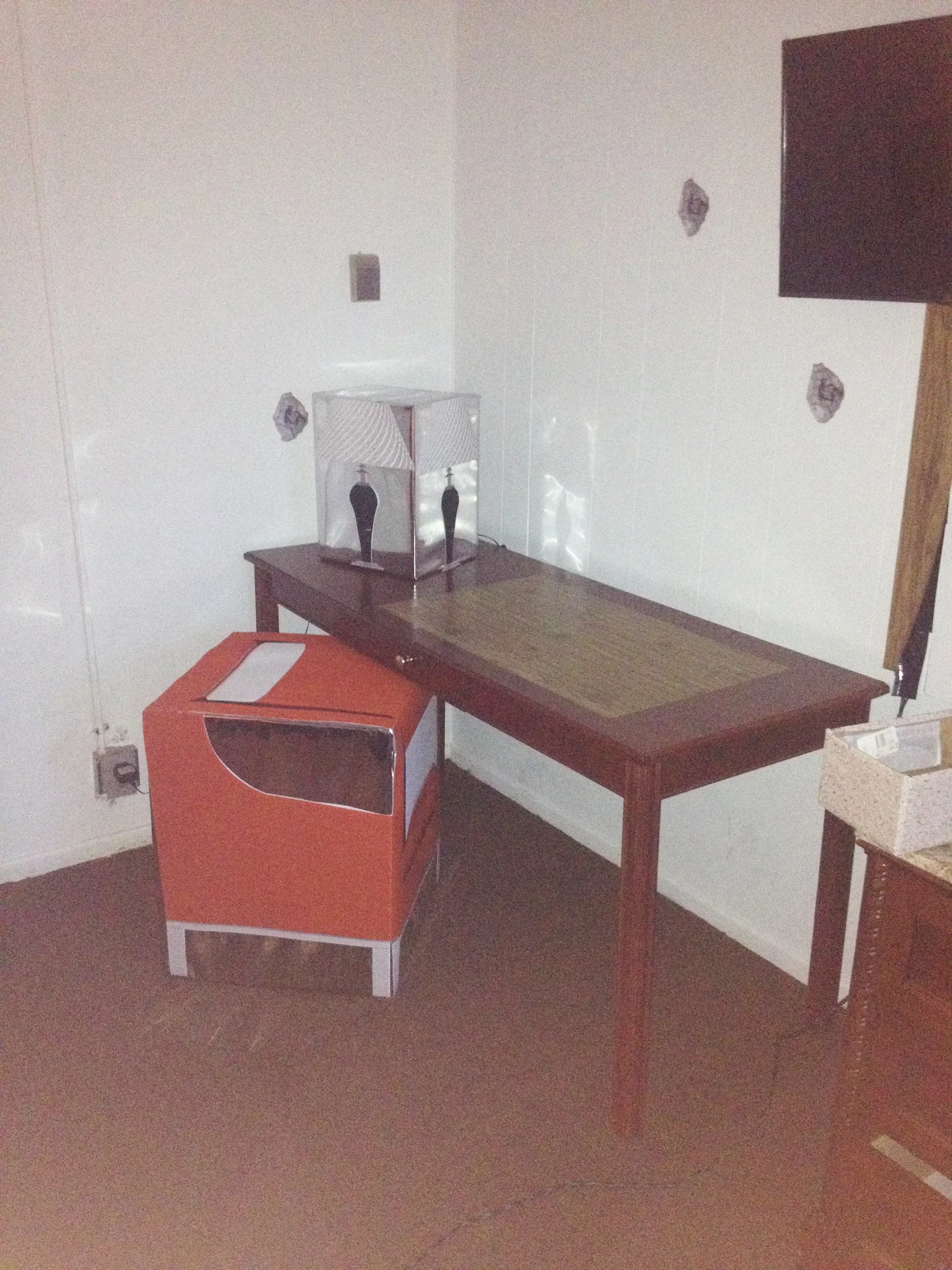Museum of the History of the Motel
Featured in Offramp Journal, #10 (The Useless issue)
Fall 2015
“There is no longer any transcendence or depth, but only the immanent surface of operations unfolding, the smooth and functional surface of communication.”
- Jean Baudrillard
Motel rooms are functional. Spatial nobrainers; idiotproof; troublefree; uncomplicated; logical.
A decently experienced traveler could navigate one blindfolded: tv and dresser opposite a bed centered on the right wall, end table on either side, bibles below and lamps above. They are arranged for the client with no face by the owner with an easyanswer catalogue, codified by the decades-long agreement made between thrifty motel owners and the even thriftier travelers that depend on them. Their shared desire for ease and convenience at the expense of a memorable transaction has produced a bad infinity of checks and balances, a building type as far removed from architectural definition as humanly possible.
“Functioning within the large field of conventions inevitably established by global markets and transnational productive systems,” Gean Moreno and Ernesto Oroza once wrote, “[they] are designed with such programmatic exactitude that spaces accommodating authorial expression are reduced to make room for qualities that foster efficient and competitive performance in commercial processes.”2
Anything nonfunctional is considered useless and therefore withheld from the interior. Motel rooms are very useful.
Like waiting rooms and airplane cabins, motels are designed and furnished to be accommodating yet ultimately unmemorable. No grand atriums, without opulent hallways, not a whiff of artistry just a row of weathered doors exposed to the traffic. For the majority of their customers, motel rooms are nothing more than mere pitstops; willing byproducts of the places where memories are supposed to be made.
But purgatory isn’t entirely undecorated either. Though customers are openly indifferent to the specific furnishings of their room for the night, they are on some level comforted by any sense of hominess that might pacify thoughts of the deal made between them and the stranger at the front desk; that this is not their bedroom and that they are actually thousands of miles away from home. Decoration is sparse yet reasonable, applied to a point just before that fateful word: useless.
Consider the art above the bed, for instance. It’s usually something nondeclarative and apolitical (horses, the ocean, a fabricated skyline…), not meant to be seen up close so much as fill up an otherwise blank wall. Their purpose is to satisfy a small part of some invisible checklist, adding up to the estimation of anyone’s home away from home. In other words, the more generic the environment, the more readily it can represent both everyone and no single person. Replacing craftsmanship for an economy of expression is precisely the turn away from architectural transcendence that motels and similar building types have strove for in the latter half of the 20th century.
Everything that defines the contemporary motel room is a formula passed around by every purveyor in the business, producing spaces designed “so incredibly well as to function with unparalleled efficiency within the systems of circulation for which they are intended.”3
Museum of the History of the Motel was a one night installation held in a motel room in Westlake, California on May 16th, 2015 that accelerated the pace of this system of circulation to its illogical end. Replacing all the interior objects with surfaced images of themselves allowed the room to be as nonfunctional as possible while appearing ordinarily useful upon first sight.
The leather bound Bible typically found within a motel room’s bedside table, for instance, was replaced with a paper box that exuded ‘Bibleness’ without any of the substance.
They withdrew their various functions (storing, resting, working) to reveal the one they have in common more clearly. Communication of time, of space, of concept is the most basic and essential task of all visible objects. Everyone that performs within the loop of inferences and implications will continue to search for the irreducible point of legibility in all things, towards greater economies of expression and demonstration of purpose.
With or without function, motel rooms are functional.







